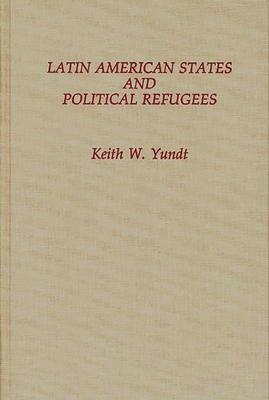The Nicaraguan revolution of 1978 and the subsequent violence engulfing the Central American states, causes mass migration of Latin American persons seeking territorial asylum. Latin American States and Political Refugees focuses on the questions surrounding this new problem of refugees. Yundt uses regime analysis, a method whereby principles, norms, and social institutions are studied to identify the general obligations due refugees. The central concern of this study is whether the regional rules, norms, procedures and social institutions established by the Latin American states in governing political refugees, are compatible with or dissimilar to those of the established United Nations refugees regime. This scholarly written and well researched book will appeal to students and scholars of international organizations, international refugee and human rights law, as well as all the social and political sciences.
Yundt begins his study with an explanation of the meaning of 'regime'; What is a regime analysis? This book examines the history and current status of colonization and immigration legislation in Central and South America. Further chapters discuss the role of international organizations, including the League of Nations and the organization of American states, in providing international legal protection to refugees. The study also explores the global refugee regime; its history and how it relates to the inter-American system.
The Nicaraguan revolution of 1978 and the subsequent violence engulfing the Central American states, causes mass migration of Latin American persons seeking territorial asylum. Latin American States and Political Refugees focuses on the questions surrounding this new problem of refugees. Yundt uses regime analysis, a method whereby principles, norms, and social institutions are studied to identify the general obligations due refugees. The central concern of this study is whether the regional rules, norms, procedures and social institutions established by the Latin American states in governing political refugees, are compatible with or dissimilar to those of the established United Nations refugees regime. This scholarly written and well researched book will appeal to students and scholars of international organizations, international refugee and human rights law, as well as all the social and political sciences.
Yundt begins his study with an explanation of the meaning of 'regime'; What is a regime analysis? This book examines the history and current status of colonization and immigration legislation in Central and South America. Further chapters discuss the role of international organizations, including the League of Nations and the organization of American states, in providing international legal protection to refugees. The study also explores the global refugee regime; its history and how it relates to the inter-American system.